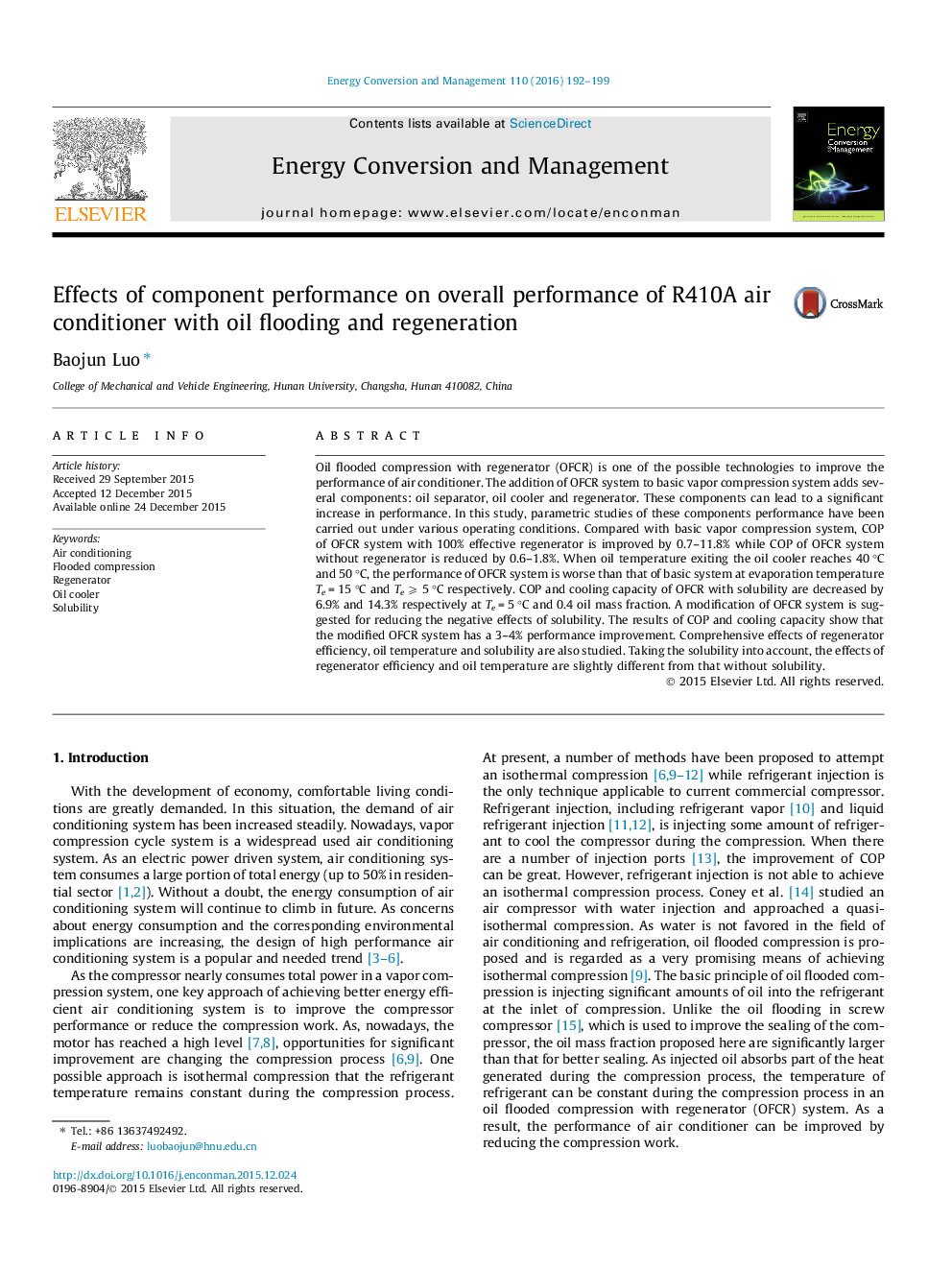| Article ID | Journal | Published Year | Pages | File Type |
|---|---|---|---|---|
| 760348 | Energy Conversion and Management | 2016 | 8 Pages |
•COP benefits more than cooling capacity with regenerator.•High oil temperature leads to degradation of the system.•The improvement brought by oil flooding was greatly reduced by solubility.•A modified system is proposed for reducing the negative effects of solubility.•Comprehensive effects of regenerator, oil temperature and solubility are obtained.
Oil flooded compression with regenerator (OFCR) is one of the possible technologies to improve the performance of air conditioner. The addition of OFCR system to basic vapor compression system adds several components: oil separator, oil cooler and regenerator. These components can lead to a significant increase in performance. In this study, parametric studies of these components performance have been carried out under various operating conditions. Compared with basic vapor compression system, COP of OFCR system with 100% effective regenerator is improved by 0.7–11.8% while COP of OFCR system without regenerator is reduced by 0.6–1.8%. When oil temperature exiting the oil cooler reaches 40 °C and 50 °C, the performance of OFCR system is worse than that of basic system at evaporation temperature Te = 15 °C and Te ⩾ 5 °C respectively. COP and cooling capacity of OFCR with solubility are decreased by 6.9% and 14.3% respectively at Te = 5 °C and 0.4 oil mass fraction. A modification of OFCR system is suggested for reducing the negative effects of solubility. The results of COP and cooling capacity show that the modified OFCR system has a 3–4% performance improvement. Comprehensive effects of regenerator efficiency, oil temperature and solubility are also studied. Taking the solubility into account, the effects of regenerator efficiency and oil temperature are slightly different from that without solubility.
